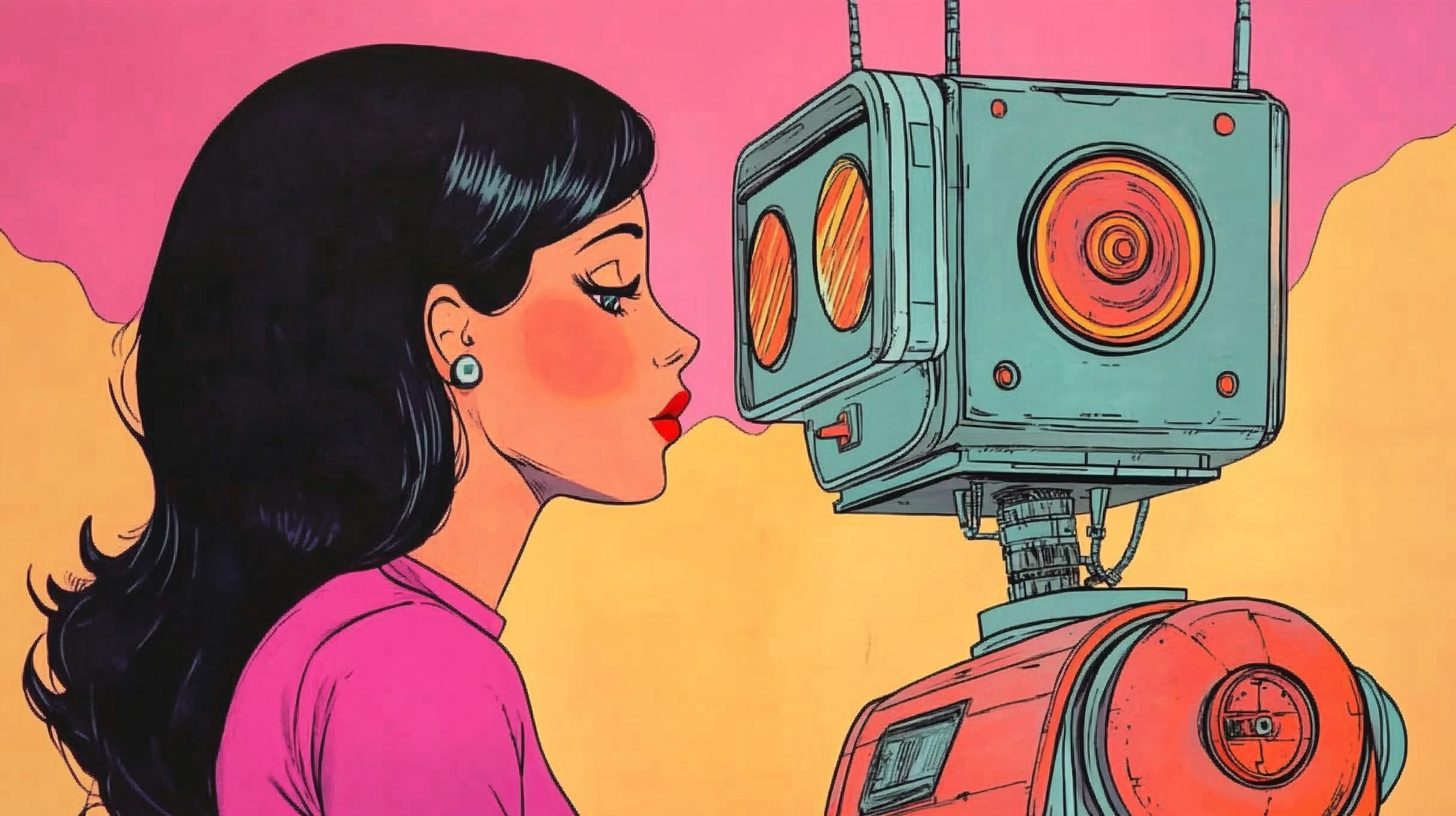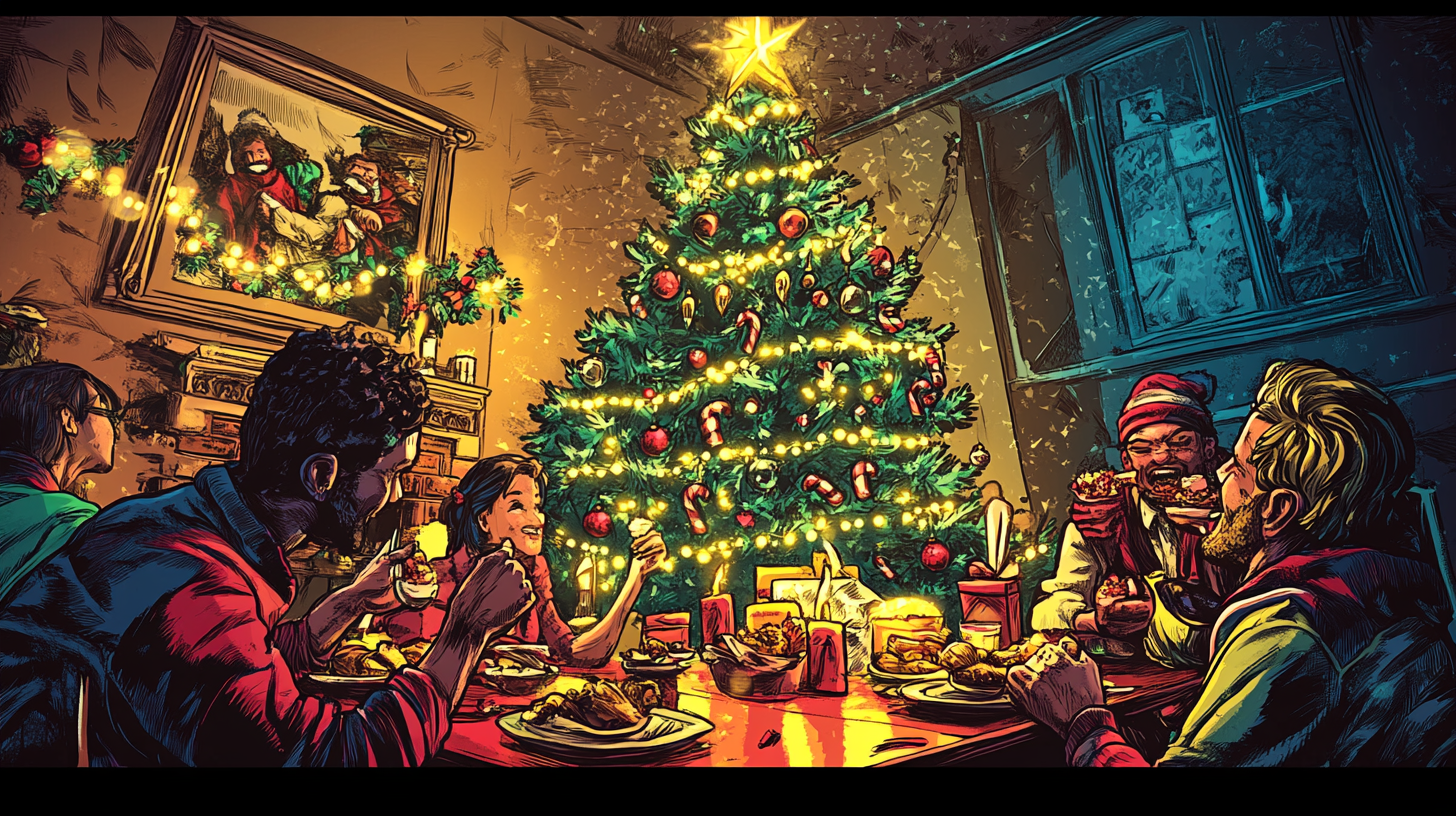The Christmas Effect: why you feel weird during the festive season 🎅

👆👆Oh look, it's The Brink podcast! Listen to this week's newsletter here! 👆👆
It’s Christmas. That means the bin bag of Christmas decorations you hastily shoved somewhere so you didn’t have to think about them is now empty, and your home is littered with tinsel and the wrappers of those sweets you bought for family and friends but you’ve eaten already.
But with the tinsel, the lights, the overeating, and the endless planning of when and how you’re going to spend time with family, comes another festival tradition: feeling weird. Yep, for many of us, Christmas brings up stuff that feels like the antithesis of this time of year: isolation, loneliness, misunderstanding, and of course, the feeling that everyone is having a wonderful time, except you.
That’s why in this week’s festive Brink, I’m going to be talking about the Christmas Effect: the seasonal phenomena that seems to wash away the version of yourself you quite happily live with most of the time in favour of someone, well, a little more vulnerable.
What is the Christmas Effect? 🎄

What is the Christmas Effect? It’s kind of like the “holiday blues” that idea that everyone is seemingly having an unbelievably brilliant time, but for some reason, you didn’t get that particular memo. But it goes further than that. It’s the duel weight of cultural or societal expectations combined with your own beliefs about how Christmas should go.
Away from the world of Christmas, back in your regular, non-Christmas life, you’re probably a capable, confident, functioning member of society. You can pay your rent/mortgage, get up on time to go to work, go to the gym, occasionally see friends, and generally navigate the world in a way that doesn’t leave you in tears.

But during the holidays, that person disappears. Your ability to coordinate your day goes out the window, and you can find yourself regressing to some childhood version of yourself, where the only power and influence you can wield is to be permanently pissed off at decisions made on your behalf.
Or how about this: during the year you are a sociable, likable (on the whole) active member of your community, but at Christmas, you become a hermit and hide from the world and eat pizza over the sink like you’ve forgotten how to be a person. What gives? That’s the Christmas effect.
Let me explain.
Intuitional expectations versus Institutional ones ⛪🧠

The world expects things from us. It expects us to be decent, to work, to pay our bills, to go to the gym four times a week.
But most of the time, that expectation can be trumped by our own wants and needs. We can choose not to be good sometimes, we can choose to pull a sicky, and to let the gym habit slide. We might feel guilty, but we live with it.
This push and pull between society and the self has a term: institutional expectation versus intutional expectation.
An institutional expectation is something that a society or a culture exerts upon its members. For example, in the UK there is an institutional expectation that you will attend school from around the age of 4, and typically carry on doing that until around the time you turn 18.
It’s a cultural, not legal belief. Of course, the government wants you to be educated, but how you choose to be educated is up to you, or your parents. You could elect to be schooled at home, or in a non-traditional educational environment.

But once you hit the end of term on your 18th year, that institutional belief disappears. There’s no external expectation on you to continue to attend education - it’s really down to you and your intutional beliefs: what do I believe, as the captain of my own ship, should I do next?
As we careen into adulthood, we bump into other institutional beliefs: marriage, work, how to live, how to dress, but the impact of these has loosened over time. Take marriage as an example. If we were to travel back in time 50 years, the expectation that you should and will marry was high.
Today, however, for the first time since records began, the number of adults who are married has dropped below 50% in England and Wales. The institutional expectation of marriage has declined. What has replaced institutional beliefs? Intutional ones.
These are largely derived from our own internal views on what we should do and be. Our careers, where we live, what we buy, how we dress, come through a lens that feels unique to us - even if they are heavily influenced by broader trends.
The key point here is that our decisions feel like they were made for and by us, rather than some external force. Those forces still and do exist, but they have to pass through that individual filter first.

But then Christmas comes around, the institutional expectation ramps up again. We start to feel pressure: I should be acting in this way not that way. It can be indirect: things TV advertising depicting scenes of happy families together can exert pressure. Or it can be direct: “what are you doing for Christmas, anything nice?” from a work colleague. And this was going on before social media came along and supercharged the whole thing.
During the festive period, our usage of social media goes up. We all catch the virtue-signaling bug, and head online to share photos and videos of how our Christmas is going - as long as it’s positive of course.
That creates a sort of internal tension - because in all of us, whether we like it or not, is a need to belong and participate in rituals that hold us in a group. Institutional beliefs are important, but they can make us feel odd, or left out, or not behaving like the good Christmas citizens we want to be.
So what to do? For most of us, it’s to go along with the status quo. But I’m going to argue that there is an alternative: a way to have your intuitional cake and eat it.
Christmas, but not as you know it 🤔

The Brink has been jogging along now for several years, and in pretty much every newsletter I write there’s an idea bubbling beneath the surface: the world throws information and expectation at you, all the time. That stuff can make you feel good, but also bad.
But just because the world serves up this stuff, it does not mean we have to just accept it. To be a passive recipient of life does not need to be so. We can be an active participant in our own story. We can push things away and pull things in. We can pick and choose to live a life that makes sense to us. Christmas is no different.

We can often feel that we must passively toe the line - that we must stand in front of a giant Christmas cannon and let it blast us in the face. But do we? Are there things in the experience we can negotiate and have ownership of? For example, can you change the amount of time you spend in a certain scenario, or take on a different role, or just say no?
I appreciate this sounds easy, but in practice is much harder. But while Christmas comes along just once a year if we were to look closely, do we find institutional beliefs cropping up in other parts of our lives and other parts of the year, too?
Do we consistently spend time with friends who don’t seem to care about us because we think that’s what we should do? Do we tolerate a terrible boss treating us poorly because it’s the right thing to do? Those beliefs can make us feel at odds with ourselves, at any time of the year.

Christmas is a magnifying glass over those ideas.
Over my 40-plus years of life, I have loved and loathed Christmas in equal measure. There have been times when I couldn’t wait to see the back of it, and times when I’ve really enjoyed it. It’s ok to feel both of those things.
But something to drop in your psychic Christmas stocking this year is this: you get to choose how this life goes, you get to choose the Christmas you want, you get to choose whether your social feed is full of thousands of people in matching pajamas doing their own, materialistic version of the nativity play where they are the main characters.
Christmas, and how you see it and spend it, is up to you.
Merry Christmas everyone.
Things we learned this week 🤓
- 👵 The internet is good for you! As long as you’re over 50.
- ❤️🩹 Women report greater fatigue but others’ perceptions say they’re doing just fine.
- 👨👩👧👧 Mothers carry 71% of a family’s ‘mental load’, dads a lot less.
- 😞 Scientists reckon they’ve found part of the brain responsible for empathy and how it works.
Just a list of proper mental health services I always recommend 💡
Here is a list of excellent mental health services that are vetted and regulated that I share with the therapists I teach:
- 👨👨👦👦 Peer Support Groups - good relationships are one of the quickest ways to improve wellbeing. Rethink Mental Illness has a database of peer support groups across the UK.
- 📝 Samaritans Directory - the Samaritans, so often overlooked for the work they do, has a directory of organisations that specialise in different forms of distress. From abuse to sexual identity, this is a great place to start if you’re looking for specific forms of help.
- 💓 Hubofhope - A brilliant resource. Simply put in your postcode and it lists all the mental health services in your local area.
I love you all. 💋










